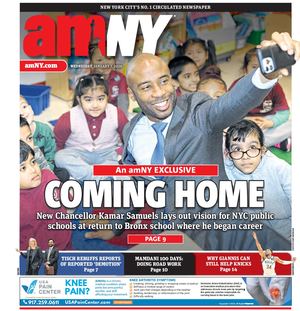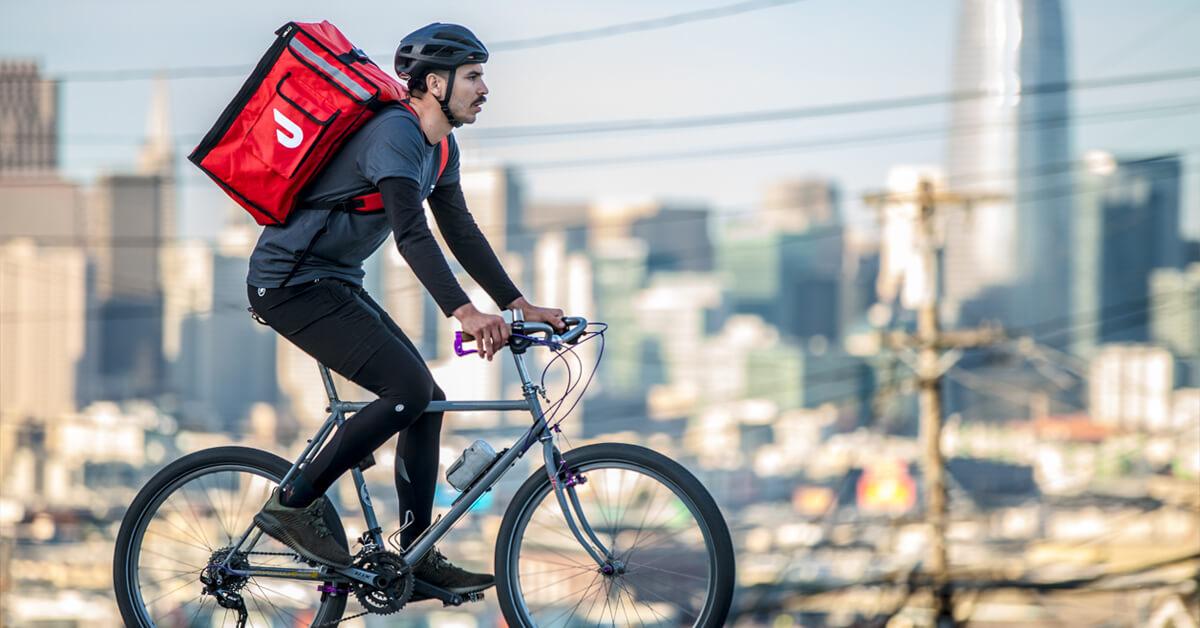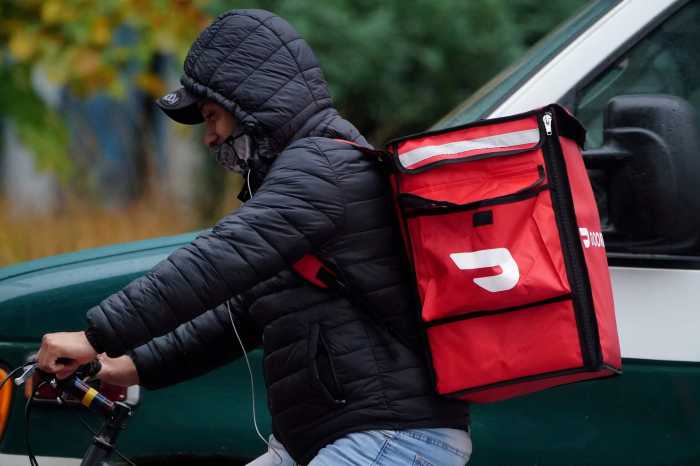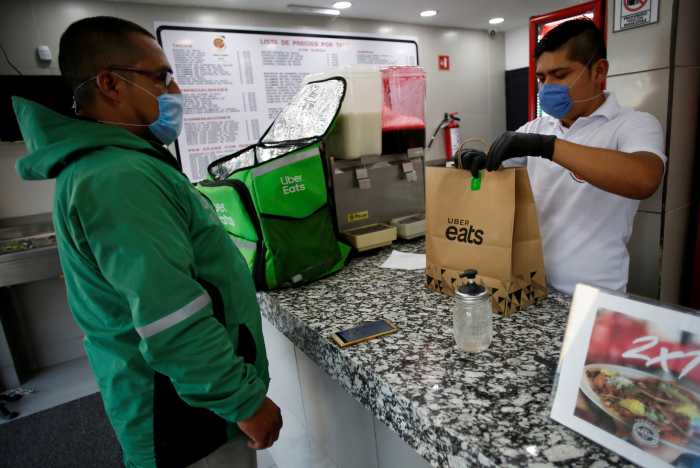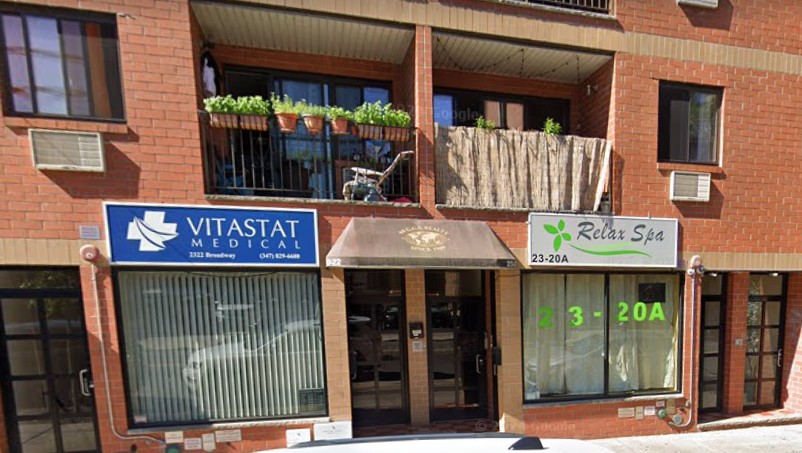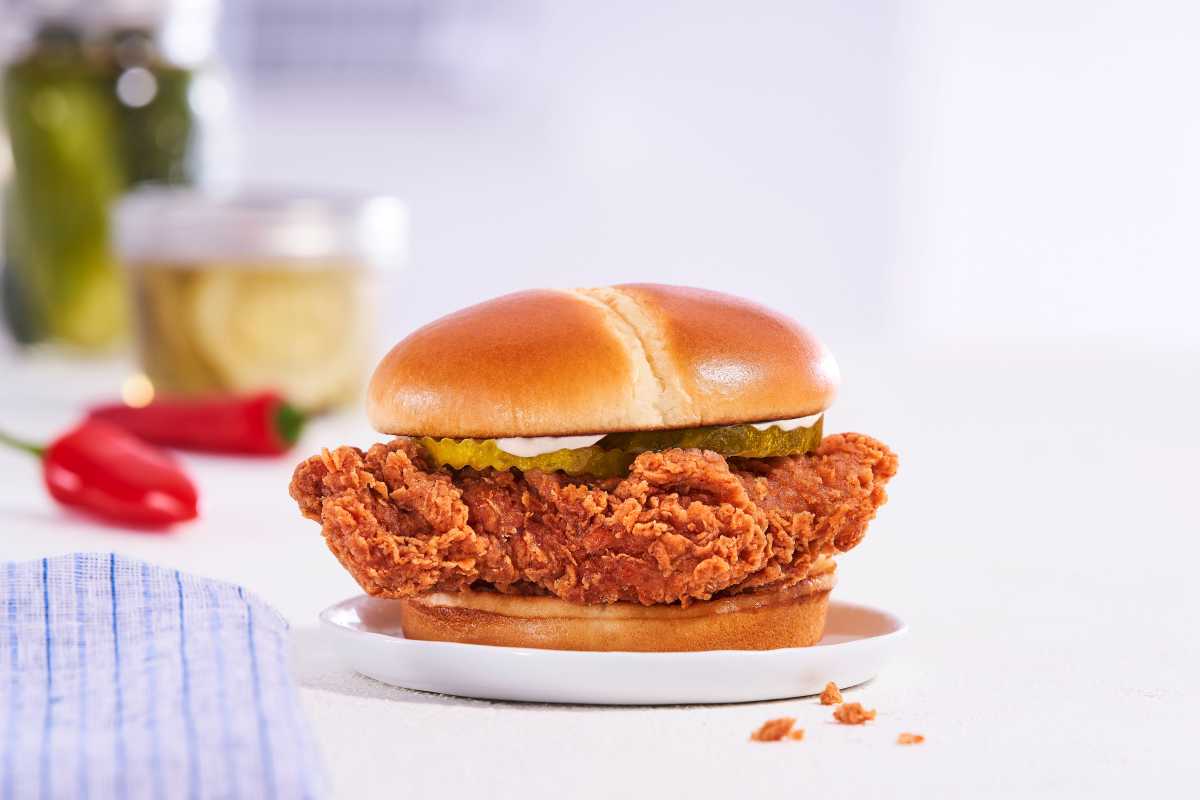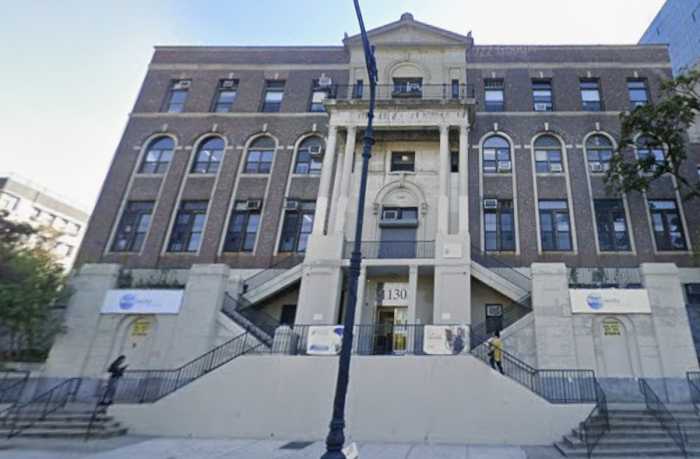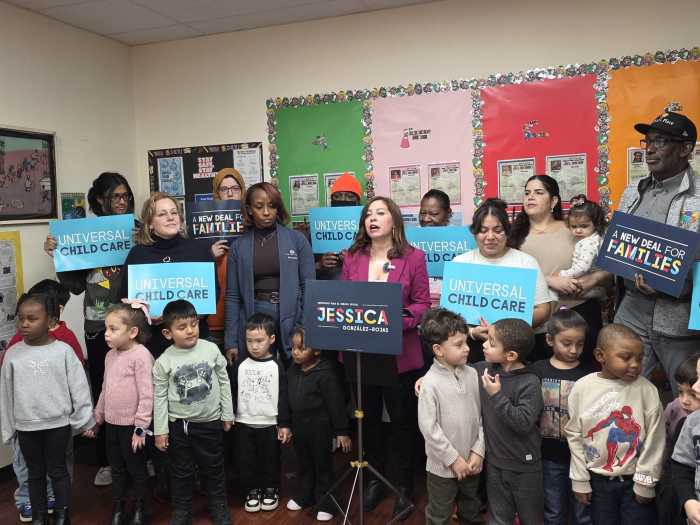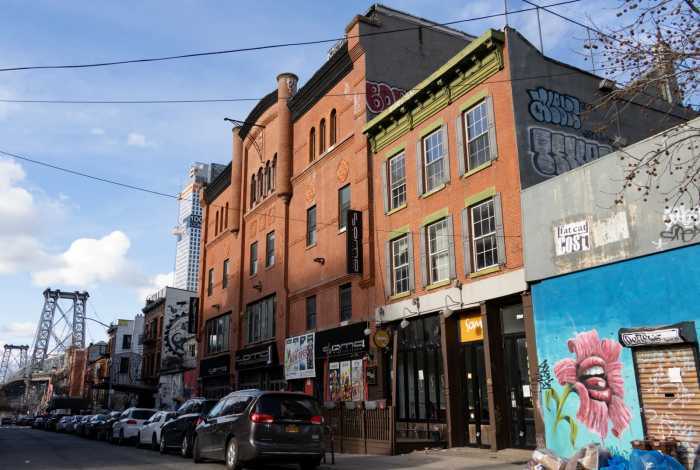Eight years after launching in New York City, food-delivery company DoorDash is entering new territory, launching a 15-minute grocery delivery hub in Chelsea.
“As the largest and most reliable logistics network in the US, DoorDash is positioned to enter this emerging industry and provide consistent quality, speed and convenience that customers know and trust,” said DoorDash president Christopher Payne, in a release. “Consumers increasingly expect an effortless, enjoyable experience, so while we are starting with DashMarts, our goal is to expand this offering to select grocery and convenience partners.”
The company is joining a fast-growing network of “quick commerce” apps providing ultrafast grocery delivery to New Yorkers. Most of the venture-capitalist backed companies, like Buyk and Gorillas, launched in the city last summer, and have rapidly gained traction and expanded their operations from a few wealthy enclaves to large swaths of Manhattan, Brooklyn, and Queens.
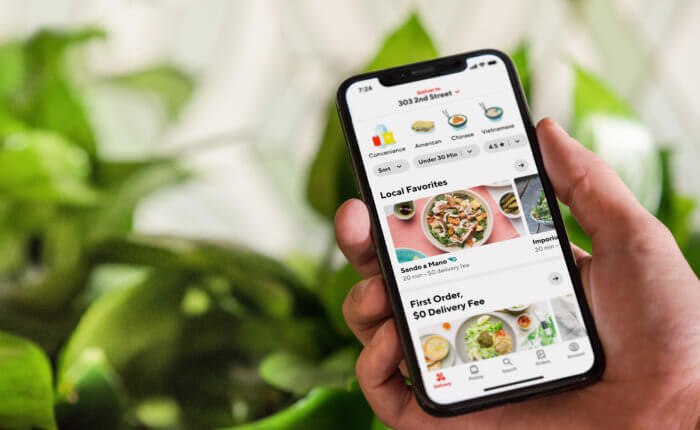
Fast delivery is guaranteed by a network of “dark stores,” small warehouses carrying a limited number of items scattered throughout the city, each with a delivery radius of about one mile.
Last year, DoorDash, which had previously focused on restaurant delivery, launched “DashMart” in a number of cities. Billed as “a new type of convenience store,” DashMarts carry a number of grocery and convenience items, as well as selections from local restaurants and businesses, all available for pickup and delivery — in a longer window.
The new DashMart in Chelsea will be the first in the city, and the first to offer fifteen-minute delivery, and the first to employ full and part-time couriers, rather than contracted workers.
“DashCorps” workers will be paid $15 per hour at minimum, with tips, according to DoorDash, and “qualifying employees will receive benefits that traditionally come with employment, including medical, dental, and vision insurance, as well as Employee Assistance Programs, Flexible Spending Accounts and commuter benefits, among others.” Most are expected to work an average of 20 hours per week.
Employees will keep 100 percent of their tips, Max Rettig, Vice President of Public Policy at DoorDash, told amNY.
“We think that those earnings will be really strong,” he said. “We’re going to provide the equipment, the e-bike, the vests, really anything the couriers need to do the deliveries.”
DashCorps employees will report to a manager, unlike the company’s current fleet of “Dashers,” who work independently, and will stock shelves and handle customer service and administrative tasks alongside making deliveries.
Existing quick-delivery companies also employ most of their couriers, though some longtime delivery workers in the city say they’re not sure if employment status alone is enough to ensure that employees are treated well and kept safe on the job.
In September, the New York City Council passed a number of bills aimed at protecting the city’s thousands of food delivery workers, who are often underpaid and overworked in what is an increasingly dangerous profession. Those bills enshrined minimum payment per trip, gave couriers the right to decide how far they were willing to travel for a delivery, and mandated that companies like DoorDash and GrubHub provide insulated food bags to their workers.
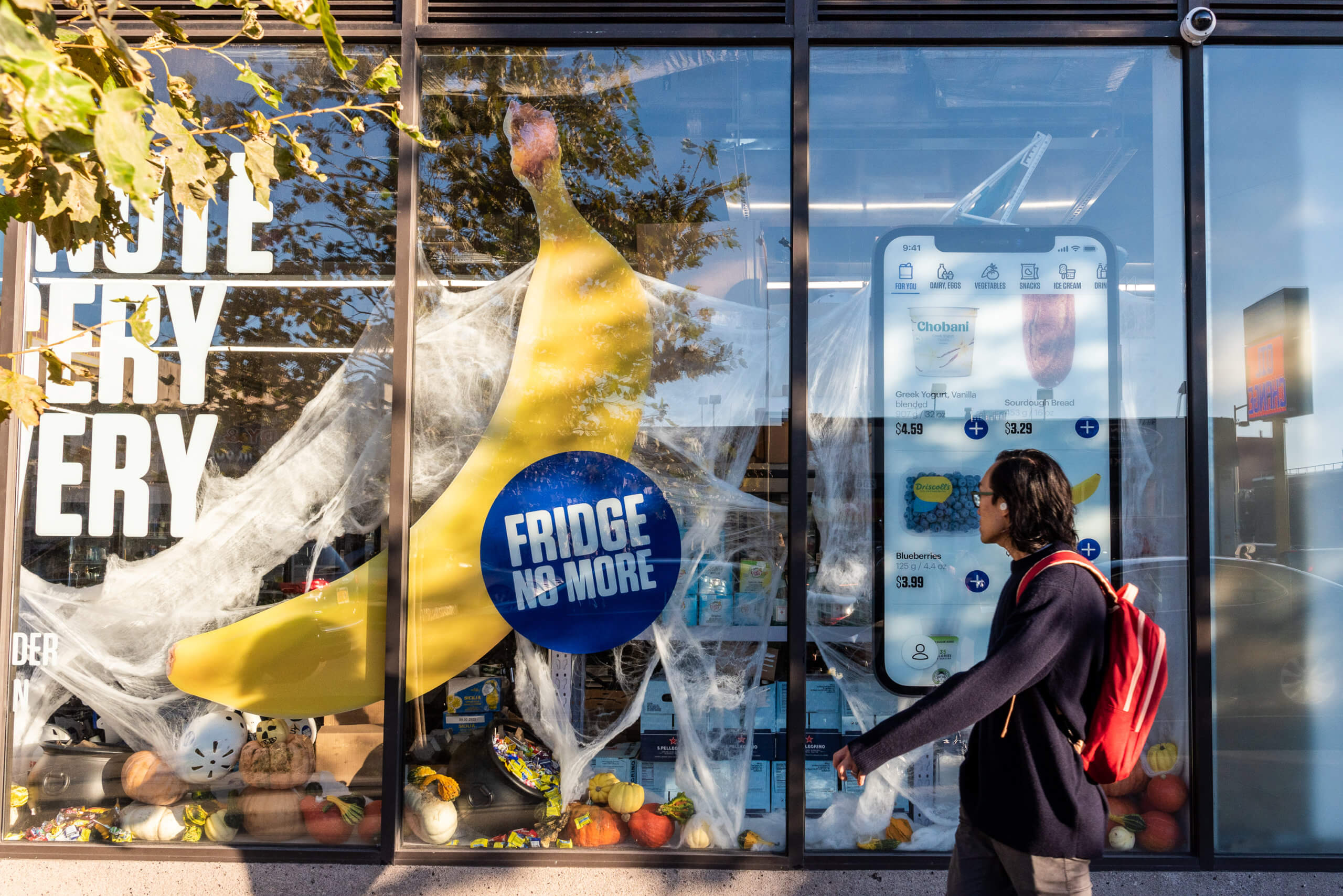
It’s unlikely that those protections will extend to delivery workers who are employed by their companies, a council staffer told amNY last month, in part because they were formulated with third-party gig workers in mind.
“They will not have the ability to say which deliveries they want to do, that’s kind of what it is to be an employee,” Rettig said. “You’re going to have to show up, you’re going to have to do the deliveries that need to be done in order to operate this ultrafast delivery service. I will say, though, that the radii around each of the DashMarts is going to be relatively small, so we’re not talking about deliveries across bridges or through tunnels.”
The company is not planning to provide e-bikes or uniforms to their existing Dashers, who will remain contracted workers, he said.
“There’s a form of flexibility and independence that you get as a Dasher that is incredibly valuable to people as they’re seeking to earn supplemental income that just won’t be available to you if you’re an employee of DashCorps,” Rettig said. “There are also things that you’ll get as an employee of DashCorps, especially if you’re working full-time, that you won’t get as an independent contractor as a Dasher.”
In addition to launching 15-minute delivery on Monday, DoorDash announced the creation of the New York Small Business Advisory Council, currently composed of representatives from the New York City Hispanic Chamber of Commerce, the Haitian American Caucus, the Bronx Chamber of Commerce, and the Yemeni American Merchants Association, who already partner with DoorDash. The council will “advise us on how DoorDash can best serve small businesses across New York City,” the company said.
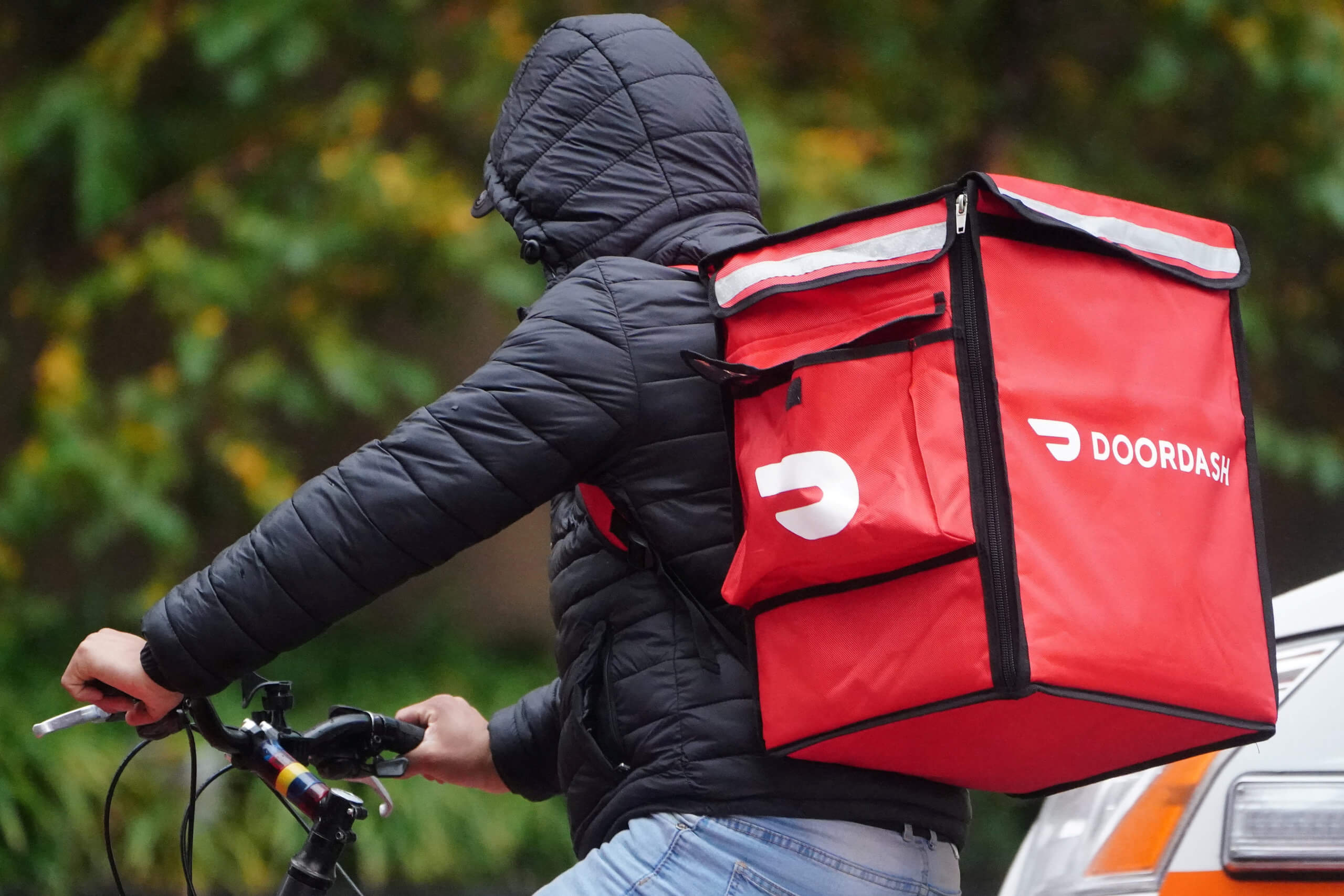
That will include offering their business and resources to local bodegas and small businesses in the form of “DoorDash Marketplace,” an online delivery platform. DoorDash also plans to “help equip bodegas with technology to grow their businesses through delivery, and work together on ongoing efforts to support local merchants, all with the goal of sustaining small businesses for the long term,” in partnership with YAMA.
“New York City’s bodegas have been the lifeblood of so many communities across all five boroughs,” said Youssef Mubarez, YAMA’s public relations director. “As technology advances, we want to help our members innovate alongside, and we’re excited for the opportunity to partner with DoorDash in this way. Through our work together, we’ll be able to arrive at more solutions that help bodegas meet the current moment, and move into the future with promise.”
Some bodega owners worry that the ease and low prices offered by delivery apps — a market previously cornered by the neighborhood corner stores — will threaten their business. Manhattan Borough President Gale A. Brewer has pushed city agencies to develop and enforce regulations on dark stores.
“I am reviewing the details of the announcement very closely, including the differences between what DoorDash is hoping to do as they enter this space and what their competitors are doing right now,” Brewer said. “As I understand it, the City currently is not prioritizing oversight and enforcement on this emerging and disruptive new sector, and I am hoping to change that. I’m very concerned about the immigrant-owned bodegas and convenience stores this announcement will affect.”
Last week, YAMA, along with United Bodegas of America and the Bodega and Small Business Association of America, jointly representing thousands of bodegas citywide, put their support behind a fundraiser for My Bodega Online, a New York City-based bodega delivery app.
Radhámes Rodríguez, president of UBA, spoke with DoorDash about joining the advisory council, but opted to decline after consulting with his organization.
“They say that they’re coming to help us, but I don’t think that they’re helping us,” he told amNY. “I think they’re just going to do business, the same business that we’ve been doing for all these years. What they’re doing is opening businesses around our area that’s going to affect us.”
Radhámes had been excited about the prospect of DoorDash’s offer to bring 15-minute delivery to bodegas, he said, but the excitement quickly faded when he realized the company was launching their own quick-commerce app.
“We know that is the new style now, that a lot of people don’t want to go to the store, they want everything delivery,” he said. “We know that we have to move on and make the changes in our stores to make deliveries, but we don’t want no more stores near to us to do the delivery, and to be agreeing with that, you know? I can’t.”
Two questions for @DoorDash:
1) What are you going to do to be different? The field is too crowded: GoPuff,JOKR, 15-20, Gorrilla, Buyk and Fridge No More. And NYC loves Bodegas.#bodegas #deliveryapp #delivery #deliveryservice #lastmiledelivery #nyctech #nyc— My Bodega Online (@mybodegaonline) December 6, 2021
“We are going to be extremely proactive in reaching out to this community to make sure that we are doing everything we can to empower them,” Rettig said. “We are very excited about the reception we are getting so far.”
The timeline and details of which stores will be brought online are still in the works, Rettig said, as is pricing. DoorDash – along with all services that deliver from restaurants – takes a cut of each delivery.
In September, DoorDash joined Uber Eats and Grubhub to sue the city after the council permanently capped the fees they could charge restaurants.
Rettig said the company’s years of operation in the city and across the country has made them “well positioned” to enter the quick-commerce space successfully.
“And, just the fact that we are taking a different approach, that we are trying to build this business in a way that is supportive of local merchants, and supportive of local communities, and listens to their needs,” he said. “I think differentiates us both as a community actor but also, frankly, as a business.”
